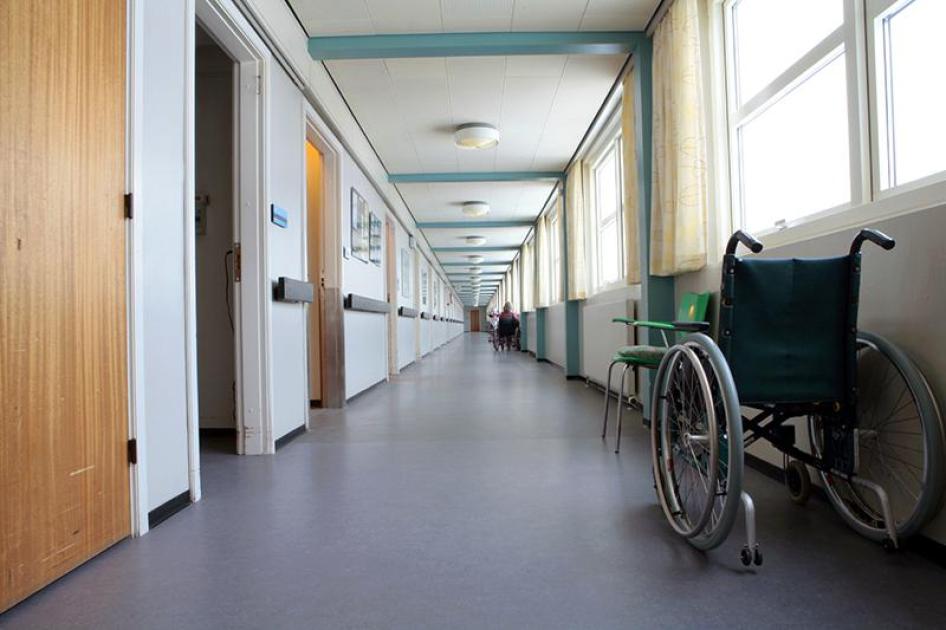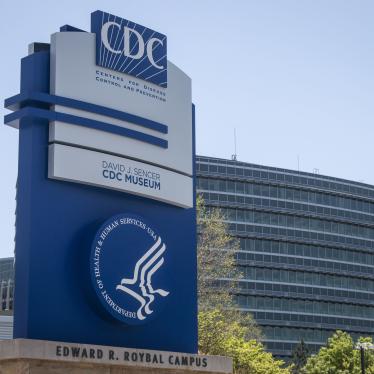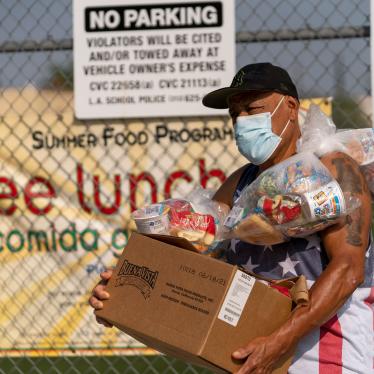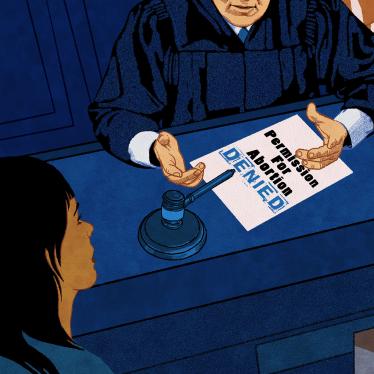(New York) – State lawmakers across the United States are increasingly denying residents of nursing facilities access to legal remedies, Human Rights Watch said today. Nursing facilities’ longstanding problems managing infection control have put already vulnerable older residents at greater risk of Covid-19 infection.
Nineteen states have recently enacted laws or gubernatorial executive orders granting nursing homes protection from civil liability in connection with Covid-19. New York state’s law shielding nursing homes is particularly problematic as it protects nursing homes from both civil and criminal lawsuits, even in some cases of gross negligence.
“Even before the Covid-19 pandemic, regular inspections turned up serious concerns about infection control in many nursing homes in the US for years,” said Bethany Brown, older people’s rights researcher at Human Rights Watch. “With high numbers of Covid-19-related deaths in nursing homes and limited oversight of facilities during lockdowns, New York and other states should be doing everything they can to protect residents and ensure they can seek justice if harm was done.”
The New York law allows nursing homes to evade any liability even for gross negligence – defined as “failure to use even slight care or conduct that is so careless as to show complete disregard for the rights and safety of others” – if the failures stemmed from shortages of staffing or protective equipment. As of June 8, 2020, 6,129 people had died of confirmed or presumed Covid-19 in New York’s 619 nursing homes since the beginning of March.
Nineteen New York state legislators are calling for a repeal of New York’s law.
Nursing home operators have been pushing state governors to issue executive orders and state and federal legislators across the US to pass laws giving them broad immunity, denying responsibility for conditions inside nursing homes during Covid-19. Pointing to state and federal government failures to provide Covid-19 tests and personal protective equipment like masks and gloves for residents and staff, they say government initiatives did not sufficiently prioritize nursing homes’ access to personal protective equipment and tests, compared with hospitals.
But that argument does not justify offering immunity to nursing home operators that might act negligently or irresponsibly, Human Rights Watch said. Problems with infection control in US nursing homes go back many years, before the Covid-19 pandemic.
A May 20 US Government Accountability Office (GAO) report on nursing home inspections found that 82 percent of facilities had infection prevention and control violations between 2013 and 2017, prior to the pandemic, despite mandatory federal infection control regulations. The violations included practices that create serious risk of spreading infectious diseases, such as failures to isolate sick residents, or to ensure that staff regularly used proper hand hygiene and masks and other personal protective equipment to control the spread of infection. Half of the facilities with violations were found to have repeated shortcomings. Inspectors categorized 52 percent of violations as part of a pattern in the facility or widespread in the facility.
Despite these concerns, the Centers for Medicare & Medicaid Services (CMS), the federal agency charged with monitoring nursing homes’ compliance with federal infection control standards, did little to compel nursing homes to improve practices, according to the GAO report. The overwhelming majority of infection prevention and control violations were categorized as not severe, and in two-thirds of cases, inspectors did not impose any enforcement actions.
Since the start of the Covid-19 epidemic in the US, oversight of nursing homes has declined. CMS issued compulsory instructions to nursing facilities on March 9 requiring them to restrict visitors, except for end-of-life situations. The instructions also required nursing homes to curtail visits by ombudsmen, who normally have the authority to visit nursing homes and other facilities to address complaints and to advocate improvements in the long-term care system.
In New York state, nursing facility inspectors who report to CMS conducted just 31 inspections between March 1 and May 28. Ordinarily, each facility in New York would be inspected every 9 to 15 months, or 150 facilities in any 3-month period. The recent inspections did not identify a single violation of infection control protocols from the time CMS issued specific guidance to nursing homes on infection control measures during Covid-19 on March 4. The reason for this is unclear, as infection control violations had been the most common violation cited by inspectors in nursing facilities in New York state since 2016.
There have been high rates of infection and death among nursing home residents across the US during the Covid-19 pandemic. As of June 4, nursing home and long-term care facility residents constituted 45 percent of Covid-19 deaths in 41 states, according to the Kaiser Family Foundation. Over 84 percent of the 1.4 million people living in the 15,500 nursing homes in the US are over age 65. Older people and those with underlying health problems are at increased risk of serious complications from Covid-19 infection.
In addition to the 19 states that have already passed immunity provisions, at least 5 other states are considering similar bills or executive orders, including California and Florida. A national bill limiting legal liability for all businesses, including nursing homes, has been discussed in the US Senate by Majority Leader Mitch McConnell of Kentucky.
Granting nursing facilities immunity from lawsuits means that residents and their families can be left without recourse even when they may have serious concerns about treatment or conduct in nursing facilities, Human Rights Watch said.
It also means they may have no way to obtain information about infection prevention, conditions, and treatment inside nursing homes during the Covid-19 pandemic that may have contributed to infection or death. A critical step in legal proceedings is discovery, where parties in a lawsuit exchange documents and information relevant to the case.
Advocates for nursing facility residents have written letters to lawmakers in recent months, calling on them to reject proposals for immunity and protect residents’ rights. One coalition of workers, consumers, and civil rights groups said that lawmakers should ensure that “companies responsible for the health and safety of others … continue having every incentive to protect them.”
“With ombudsman visits on hold and family visits cancelled, legal immunity for nursing home operators is a recipe for abuse, especially given the risk of more waves of Covid-19 in the future.” Brown said. “People who may have been harmed by their nursing homes won’t get a chance to seek justice, and the facilities will have no incentive to change problematic practices.”








